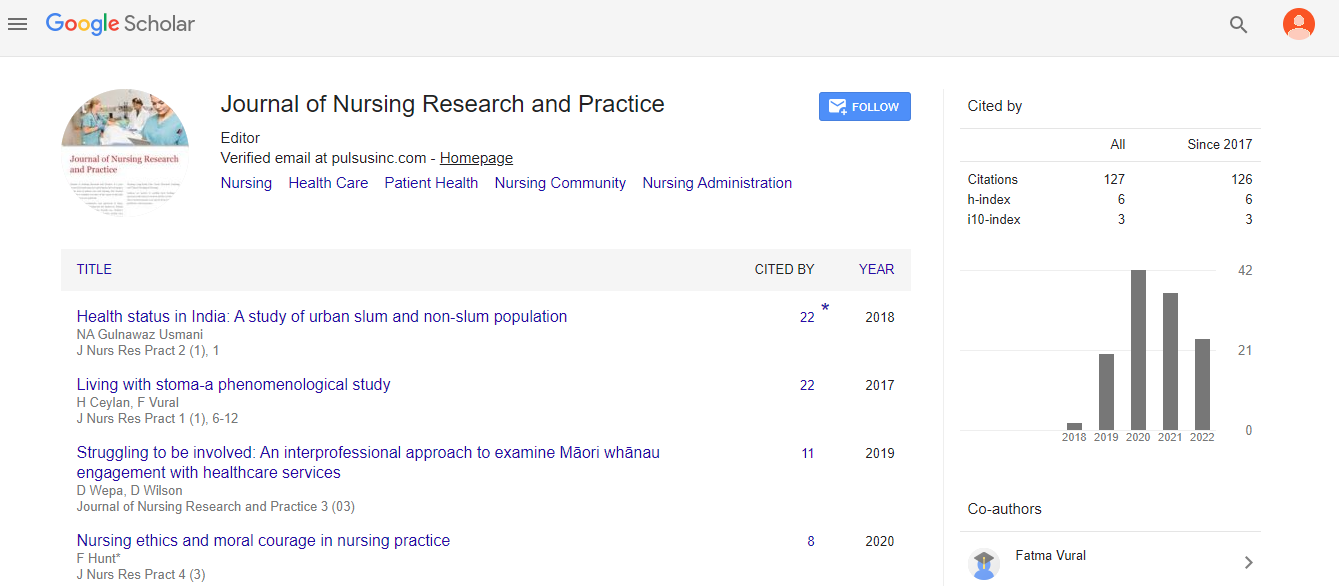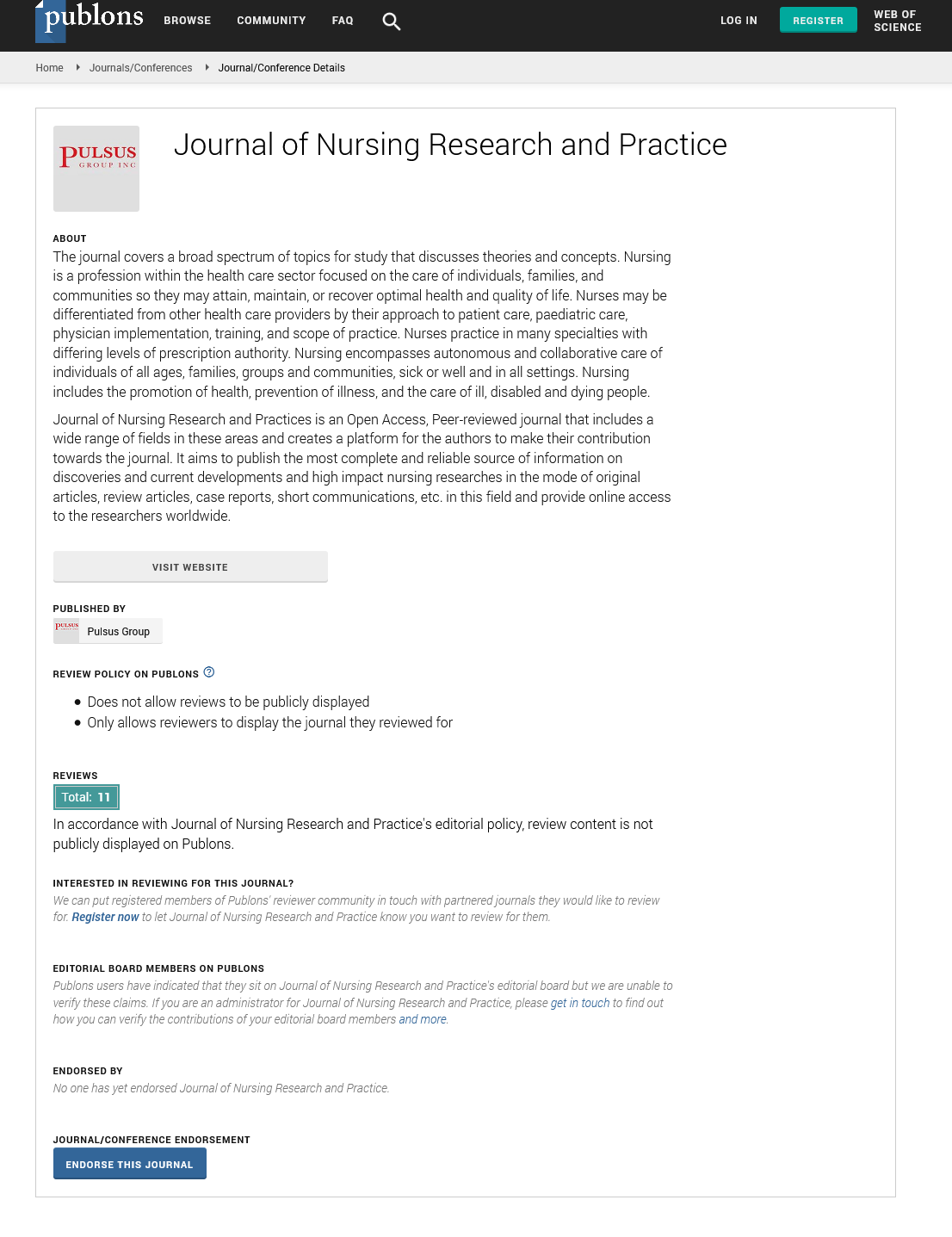Frontline healthcare staff during the COVID-19 pandemic
Received: 15-Aug-2021 Accepted Date: Aug 20, 2021; Published: 25-Aug-2021, DOI: 10.37532/2632-251X.2021.5(8).91
Citation: Santosh B. Frontline healthcare staff during the COVID-19 pandemic. J Nurs Prac 2021;5:8
This open-access article is distributed under the terms of the Creative Commons Attribution Non-Commercial License (CC BY-NC) (http://creativecommons.org/licenses/by-nc/4.0/), which permits reuse, distribution and reproduction of the article, provided that the original work is properly cited and the reuse is restricted to noncommercial purposes. For commercial reuse, contact reprints@pulsus.com
Editorial
The unprecedented, never faced deadly coronavirus disease (COVID-19) fast spread and high fatality rate leading to mass infection and deaths turned the viral disease into pandemic emerged in early 2020, put unprecedented physical, mental, and emotional strain on the staff of health care organizations, who have been caring for a critically ill patient population for more than a year and a half.
The healthcare workers deployed as a first line of defense against the deadly viral pandemic, struggled to keep up with new information about the disease, while also coping with the anxiety associated with caring for affected patients. The pandemic challenged the till now’s most developed and resourceful healthcare system in an unprecedented way, and proved to be a continual challenge for nurse leaders to provide adequate support for staff members and keep them informed about frequently changing practices and protocols.
The scarcity of scientific information, medical practices and treatment protocols continuously kept molding methodology to deal and manage the pandemic. The impact of global pandemic severely affected the frontline health care workers especially extremely, the most essential employees placed at the bottom structure of medical hierarchy levels, structuring and providing solid support base faced the unknown difficulties not only caring for affected patients, but also worried of unable to isolate at home, how to protect themselves and their families. These and other stressors brought on by the pandemic have taken an overall physical and emotional toll and, more specifically, have contributed to fatigue, stress, anxiety, and burnout among health care workers. The knowledge gained through these initial experiences has been a vital resource as health care workers continue to face challenges associated with the ongoing pandemic.
The pandemic left everyone perplexed with little or no information to face an unprecedented situation, for which no one knew how to prepare, The medical logistics center faced major institutional challenges, such as limited availability of Personal Protective Equipment (PPE), lack of physical space to meet the increasing patient census demands, staffing shortages and the need to redeploy staff to care for COVID-19 patients, communication challenges, and ways to provide psychosocial support to staff. The clinical medical data expert’s predictions of an exponential increase in COVID-19 cases based on the inputs collected from ground zero and mass testing centers and deadly virus behavioral changes and effectiveness, led to requiring hospitalization of mass infected patients, extremely affected patients emergency management preparation was necessary, including structured organizational response to events that is compliant with the National Incident Management System. The physical and emotional toll that the initial COVID-19 surge had on health care workers cannot be ignored.
It is the responsibility of hospitalwide and unit-based leadership to recognize these challenges and be willing to implement interventions to provide robust clinical and emotional support for staff to promote self-care and well-being. As nurses, we must take every opportunity to acknowledge and celebrate all that health care workers have accomplished. The level of expertise, resiliency, creativity, and compassion that all nurses continue to demonstrate amid the ongoing COVID-19 pandemic is truly outstanding and commendable.






